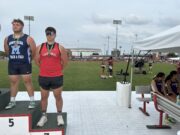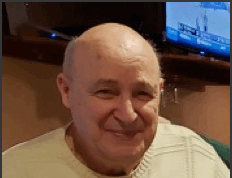For those who are curious about the skills demonstrated by an excellent high school science teacher, the information is only one click away using Google. For those, however, who want to observe an excellent science teacher in action, we direct your attention to Rachel Gensburg’s lab at the Trumbull Career & Technical Center.
Rachel Robinson Gensburg is a 1999 graduate of Newton Falls High School. She is currently employed as a zoology/biology teacher at the TCTC. She is married to a fellow NF graduate, Bret Gensburg. They have one daughter.
When asked how she ended up teaching science as her vocation, Gensburg saluted the efforts of her teachers at Newton Falls high school. She stated, “I had great science instructors who made class interesting and rewarding for their students. They became my role models for what I hoped to become.”
Gensburg is a National Board Certified Science Instructor. This is an honor earned by only 2% of the nation’s teachers. Obtaining NBCT is a very time consuming, arduous process, but for Gensburg, it was an educational game changer.
She stated, “The process requires a candidate to reflect deeply on their instructional practice. You are required to produce lessons that show student growth in the subject area. This helped me to quickly separate what worked from what didn’t work and to make changes in my approach to teaching.”
Gensburg provided examples of how she has adjusted her practice in the past decade. “I used to believe the textbook was the primary focus of information for my students, but now, I also use on-line resources to supplement instruction. It is more important for students to know what to do with information than to memorize it.”
As she reflected back on her first year as a teacher in 2005, she commented on the change in her approach with students. “I have learned that is vitally important to relate to kids as a person instead of relying on my positional authority as a teacher. By sharing some details about my life, students do likewise and it creates for a more caring relationship.”
Larry Crawford, Academic Supervisor, stated, “One of the hallmarks of Rachel’s teaching is her constant search for new ideas. She is never satisfied with the status quo. She is very adept with educational technology and integrates it seamlessly into her instructional practice. Her students appreciate that they receive almost immediate feedback about what they have done right and what needs to be improved.”
In the present era, there are many distractions that can impede the learning process. Students don’t automatically walk into a science lab with a “teach-me” attitude. Gensburg’s solution is to make science instruction as practicable as possible. Her lessons often connect the curriculum with real life experiences.
She stated, “Science teachers need to help students see bias, opinions and falsehoods in the things they interact with. They need to discern the truth and to know what questions to ask in daily life. When students can see how they will apply the information that is presented, a greater percentage buy into the process. I try to create lessons where students work collaboratively with their peers in making decisions.”
Presently, students are working in groups to research the ecosystems of the National Parks in the United States. Their goal is to convince their classmates why the park they selected would be the ideal tourist attraction.
Finding science teachers who combine knowledge of subject matter with the interpersonal skills to relate successfully to teenagers is not an easy task. Everybody who wears a white lab coat is not an automatic fit for the position. In hiring Rachel Gensburg, the TCTC got two for the price of one. The result pays dividends for our students.
















